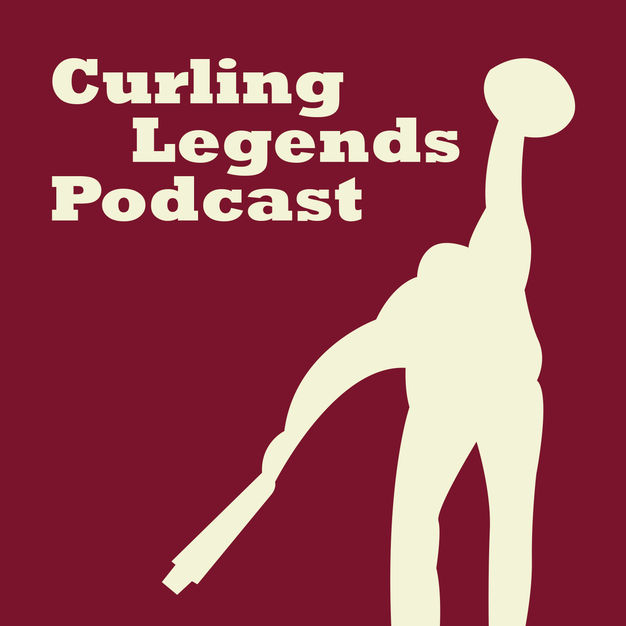
Curling Legends Podcast
Kevin Palmer
Conversations with the players and storytellers who shaped Curling from the 1940’s to the modern era.
- 1 hour 12 minutesEpisode 91 - Ron Braunstein
Ron Braunstein missed the Scotch Cup. Committed to his exams, Gordon McTavish went in Ron's place and Canada lost its first world championship in men's curling in 1965. Back in 1958, Gord had helped Ron and brother Terry join the men's league at the Granite Curling Club, becoming the first Jewish members and, joined by Ray Turnbull and Jack Van Hellemond at front end, the youngest team to participate in the Brier. Ron shares stories from his early days to his Brier success, all while painting a picture of Winnipeg curling during the post-war boom of the fifties and sixties.
24 December 2024, 1:00 am - 51 minutes 37 secondsEpisode 90 - George Fink
George Fink is unflappable. Raised on a farm in Saskatchewan, he began curling with his family on a two sheet club with natural ice. George won the Brier and World Championship in 1966 as third for Ron Northcott. The team, which included Bernie Sparkes and Fred Storey at front end, started as an entry into the Edmonton carspiel. George explains how the team came together and touches on his many other accomplishments, including winning five carspiels over his playing career.
13 October 2024, 5:15 pm - 1 hour 23 minutesEpisode 89 - John Cullen/Warren Hansen
John Cullen joins Kevin to discuss his new podcast series Broomgate: A Curling Scandal. John explains how the project came together, what he learned through the experience and what surprised him. John shares stories left out of the show and they discuss how sweeping is impacting the sport today. Following the talk with John, Warren Hansen provides his memories from two of the craziest Briers in history. The 1993 Brier featured an unexpected procedure to break the four-way tie for first place. The resulting Friday night fiasco was preceded earlier in the week by a secret visit from ice maker Shorty Jenkins. In 1994, the newly written Brier rulebook produced a stalemate between Rick Folk and Russ Howard on choice of stones ahead of the playoffs, all leading to a confrontation the night before Sunday's championship final.
1 June 2024, 8:36 pm - 1 hour 55 minutesEpisode 88 - Dorenda Bailey
Dorenda Bailey did it all by twenty-two. Growing up in Moose Jaw, a provincial High School championship was followed by multiple collegiate victories representing the University of Saskatchewan. Junior girls curling was limited to regional events in the sixties but the women's ranks offered a chance to become a national champion. When Dorenda's sister Cheryl moved to Saskatoon in 1969 they were joined by Linda Burnham and Joan Andersen at front end and everything fell into place. The first step was beating defending Canadian champion Joyce McKee to win northern Saskatchewan. Next, the squad rebounded from a first game loss to win the best of three against Pauline Klaudeman from the south. Recently married and six months pregnant, Dorenda (now Schoenhals) was headed to the 1970 Canadian Ladies Curling Association Championship in Calgary. Beginning with long slides which were considered "un-ladylike" at the local club, to practice and fitness training, their team blazed a trail for young women in curling. Dorenda explains what to do with free beer when your team drinks milk and orange juice, finding uniforms for a teammate who wears jeans and how to balance your delivery while pregnant.
17 February 2024, 8:00 pm - 1 hour 22 minutesEpisode 87 - Jim Waite
Jim Waite learned honour in curling at an early age. Playing lead in a bonspiel final, their opponent's last stone picked and Jim's skip, Don Anderson, allowed Alfie Phillips Sr. to throw it again. Jim got his purple heart in 1968, winning Ontario as second for Don Gilbert. He later moved to officiating, becoming chief umpire for several Canadian and World championships and in 1993 became the national coach for the Canadian men's team. Jim shares tales from his playing days to his four Winter Olympics including Gushue's phone calls, Team Harris pratfalls, and an oddly timed lunch between Kevin Martin and Pal Trulsen.
10 February 2024, 2:05 am - 1 hour 7 minutesEpisode 86 - Susan Seitz
Susan Seitz kept knocking at the door. After winning an Alberta Junior Championship in 1968 it would take 13 years and several close calls before capturing her first women's provincial championship. Susan and third Judy Erickson, second Myrna McKay and lead Betty McCracken, travelled east to St. John's for the last CLCA Championship (Scott Paper took over sponsorship the following year). A win in the final game over local favourite Sue-Anne Bartlett was followed by a trip to Perth, Scotland for the third women's world championship. Susan shares stories from the early days to the Calgary curling scene of the 1970s, covering all the highs and lows of over five decades in curling.
2 December 2023, 11:08 pm - 1 hour 26 minutesEpisode 85 - Larry McGrath
Larry McGrath rode horses to the curling club. His father would take him via horse and sleigh on Saturday mornings to practice on a sheet of natural ice in Dodsland, Saskatchewan. Larry honed his skills in local bonspiels as a teenager and eventually came up against the famous Richardsons, and won. He initially found success teaming with Darlene Hill, John Gunn and Marlene Dorsett to win back-to-back Canadian mixed championships in 1967 and '68. Another mixed title came in 1971 (with Marlene replaced by Audrey St. John) but a purple heart still evaded him. Larry would reach his only Brier in London in 1974, falling just one game short of a playoff with Alberta's Hector Gervais. Larry shares stories from his early days to the many events and carspiels (he won three), being a driver for Paul Gowsell (and his opponent in the famous "pizza" game) and dealing with Russ Howard's headsets as player representative for the CCA in the 1980s. Larry passed away on August 20, 2023.
19 October 2023, 3:11 pm - 1 hour 47 minutesEpisode 84 - Eugene Hritzuk
Eugene Hritzuk walked over to curl after hockey practice. Planted in goal with no face mask, the team took shots at him. After one puck whizzed past Eugene's ear and another hit him in the collarbone, it was time to try a safer sport. Strapping on suspenders and gnawing on straw from his corn broom, Eugene went to battle in the Saskatchewan playdowns and eventually won his first purple heart in 1985. He returned to the Brier in 1988 with Del Shaughnessy, Murray Soparlo and Don Dabrowski where they defeated Paul Savage in the semis and faced Alberta and the Ryan Express in a classic championship final. Eugene shares stories from that era and reflects on his early attempts to build a players association with Ed Lukowich.
20 March 2023, 4:04 am - 1 hour 8 minutesEpisode 83 - Hersh Lerner/Wally Ursuliak and Will Pacarynuk
Hersh Lerner says if you're not nervous it's BS. Hersh grew up in Winnipeg, learning to curl at the Maple Leaf Curling Club. His talent for golf was matched by his prowess on the ice, scoring three 8-enders in one season. Joined by Coleman Staniloff, Robert Lemecha and Allan Dudar, Hersh first won a purple heart in 1963. The crowd in Brandon was stunned watching the Richardsons of Saskatchewan dismantle Manitoba 16-4. The Lerner squad didn't recover that week, finishing 3-7. Vowing he'd be back, Hersh returned in 1966, again with Robert and Allan and now joined by Bob Dudar at lead. They finished 6-4, defeating eventual winner Ron Northcott from Alberta but losing close games to Bob "Pee-wee" Pickering of Saskatchewan and runner-up Joe Gurowka of Ontario. Before talking to Hersh (43:50) Kevin sits down with the guest from episode 24, Wally Ursuliak and his friend Will Pacarynuk. "Lucky" Will, aka "Fudgie", has spent the last few years writing WALLY-san , a history of Wally's life and legacy.
5 March 2023, 3:36 pm - 46 minutesEpisode 82 - George KarrysGeorge Karrys bought The Curling News. February 15, 2023 was the 25th anniversary of the Olympic men's curling final in Nagano, Japan. George and teammates Mike Harris, Richard Hart and Collin Mitchell of Canada won a silver medal after losing to Patrick Hurlimann of Switzerland. Five years later, George purchased the Canadian Curling News from Doug Maxwell. This episode looks back at the history of The Curling News, its origin dating back to 1957 and how George became the custodian of this legendary journal of curling. Follow the column "Buried Treasure" and Curling Legends Podcast Facebook page where host Kevin Palmer digs into past issues of The Curling News, sharing articles and photographs while tracing the evolution of the sport.1 March 2023, 8:01 pm
- 1 hour 31 minutesEpisode 81 - Heather HoustonHeather Houston isn't a stereotypical skip. She never felt a need to be the centre of attention, often avoiding the limelight. When Heather and Lorraine Lang formed a new team in 1987 with Diane Adams and Tracy Kennedy at front end, quick success made it difficult to evade public attention. After winning the Scott Tournament of Hearts in 1988, they became the first Team Canada to win the Scotties again in 1989. Heather shares her thoughts on skipping, finding success, dealing with disappointment and asks the question, "if you didn't win would you have had as much fun?".22 February 2023, 7:39 pm
- More Episodes? Get the App
Your feedback is valuable to us. Should you encounter any bugs, glitches, lack of functionality or other problems, please email us on [email protected] or join Moon.FM Telegram Group where you can talk directly to the dev team who are happy to answer any queries.
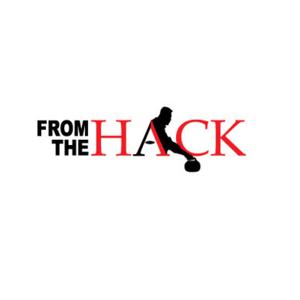 From The Hack
From The Hack
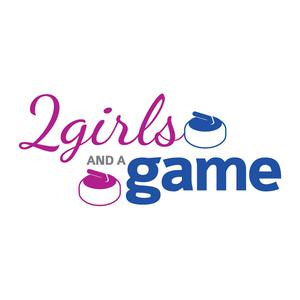 2 Girls and a Game - Curling Podcast
2 Girls and a Game - Curling Podcast
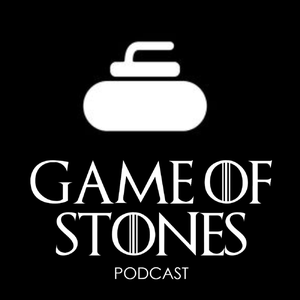 Game of Stones Podcast
Game of Stones Podcast
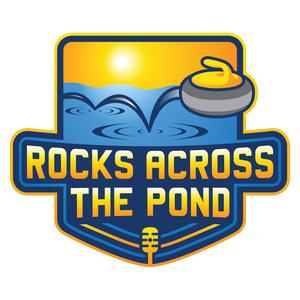 Rocks Across the Pond
Rocks Across the Pond
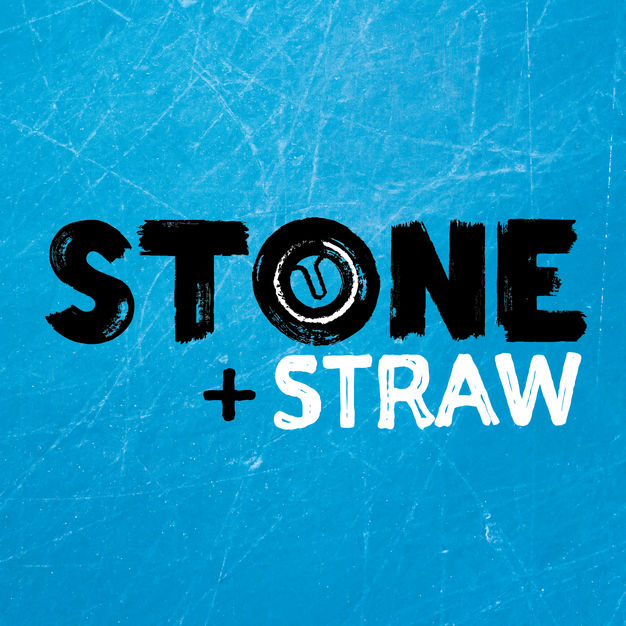 Stone + Straw
Stone + Straw